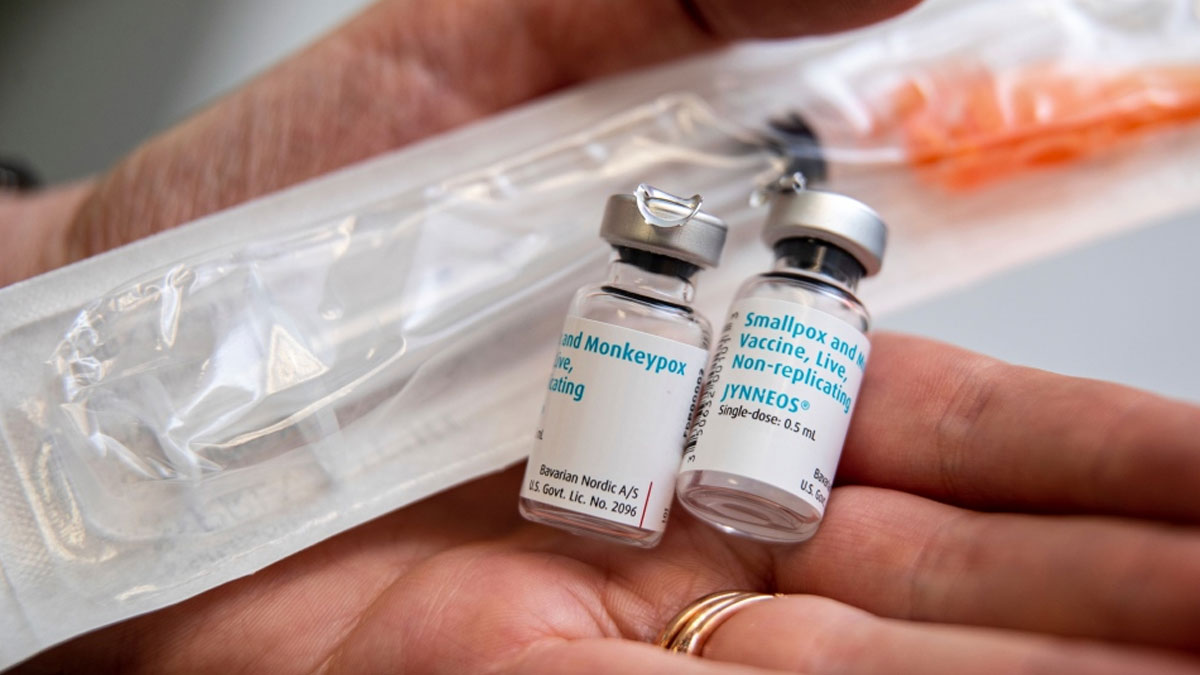
The Democratic Republic of Congo (DRC) has made a significant stride in its fight against a severe mpox outbreak, receiving its first shipment of vaccines. The outbreak has prompted global health organizations, including the World Health Organization (WHO), to take swift action as cases continue to rise in the country and across several African nations.
Table of Content:-
Mpox Outbreak Puts Congo at Center of Global Health Emergency
With a population exceeding 100 million, Congo is one of the countries most affected by the ongoing mpox outbreak. The viral disease has already been reported in 13 African countries, according to a report by the Africa Centres for Disease Control and Prevention (Africa CDC). The situation has escalated to the point where the WHO declared a global health emergency in August, as cases of mpox surged, particularly with the emergence of a new strain of the virus.
Congo's health authorities are banking on the newly received vaccines to curb the spread of the disease. The country has been particularly impacted in its Equateur and South Kivu provinces, regions where the virus has taken a strong foothold.

Vaccines Provide Hope: A Critical Tool in the Fight
Congo's Health Minister, Samuel Roger Kamba Mulamba, addressed the importance of the vaccine, emphasizing that it had already shown success in combating mpox in the United States. He expressed hope that this vaccine rollout would quickly contain the outbreak in Congo. The vaccine in question was developed by Bavarian Nordic, a Danish pharmaceutical company. This vaccine is currently the only one approved for mpox prevention in both Europe and the United States, but it is only available for adults. However, the company is conducting trials to evaluate its safety and efficacy for children aged 12 and above.
Laurent Muschel, head of the EU Health Emergency Preparedness and Response Authority (HERA), shared that the initial delivery to Congo comprised 99,000 doses, with an additional 101,000 doses expected soon. This brings the total number of vaccines to 200,000, a critical contribution from the European Union to help Congo battle the mpox crisis. "This delivery reflects the solidarity between the European Union and Africa and showcases our ability to respond promptly to health emergencies," Muschel noted.
Also Read: WHO: First Phase Of Polio Campaign Concludes Successfully In Gaza
The Extent of the Crisis: Cases and Strains in Congo
Mpox cases in the DRC have been alarmingly high this year. Since the start of 2024, the country has reported more than 17,500 cases and 629 deaths, according to the WHO. Two strains of the virus are circulating in the DRC: clade 1b and clade 1a, with the former raising particular concerns due to its rapid spread among humans.
The WHO's emergency declaration on August 14 was largely in response to the surge in cases of the clade 1b strain. Health experts warn that certain groups, particularly children under 15, pregnant women, and individuals with compromised immune systems (such as those living with HIV), are at heightened risk of severe illness or death if infected.
Lindis Hurum from Doctors Without Borders, stationed in Goma, eastern Congo, expressed concerns about the unpredictability of the virus's behavior, stating that more research is needed to fully understand the extent of the threat it poses.
Challenges Ahead: Vaccine Rollout and Logistical Barriers
Despite the hope brought by the vaccine arrival, Congo faces significant logistical challenges in rolling out the immunization program. The country, which spans an area four times the size of France, struggles with poor infrastructure, erratic electricity supplies, and inadequate transportation networks. These conditions make it difficult to distribute vaccines across the vast territory.
In addition, the Bavarian Nordic vaccine requires specific storage conditions, as it must be kept at -20°C (-4°F), a temperature that may be difficult to maintain in many parts of Congo due to unreliable power supplies. Cris Kacita, who is heading Congo’s mpox outbreak response, stated that the country aims to begin vaccinations by October 8, provided the remaining vaccines arrive on time. However, health authorities recognize that the logistics of this nationwide vaccination campaign will be daunting.
Understanding Mpox and Its Impact
Mpox, a viral disease transmitted through close contact with infected animals or humans, causes symptoms such as fever, muscle pain, and skin lesions filled with pus. Though the disease has been present in Africa for decades, recent outbreaks and new variants have made it a growing public health threat.
The arrival of vaccines is a critical first step in addressing this outbreak, but Congo’s efforts to control mpox will require continued global support, improved infrastructure, and careful monitoring of the virus’s spread. As the country prepares to roll out vaccinations and manage the logistical hurdles, the world watches closely, hoping that these measures will contain the outbreak and prevent further loss of life.
Also watch this video
How we keep this article up to date:
We work with experts and keep a close eye on the latest in health and wellness. Whenever there is a new research or helpful information, we update our articles with accurate and useful advice.
Current Version